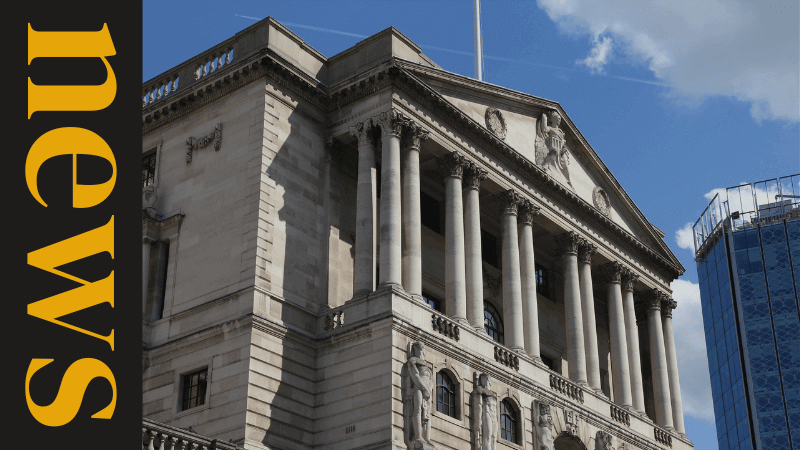Categories
Self Employed Loans with No Proof of Income

For the self employed, sometimes it's hard to prove your income. This is especially relevant when you are looking for larger loans such as business funding or a mortgage.
As business and property finance specialists, we've compiled this guide as a run-through of the funding options available to self employed individuals with limited proof of income.
The Questionable Past of No-Doc Loans
Loans with no proof of income are often referred to as no-doc loans (or no documentation loans), and the most typical application was the no-doc mortgage, a mortgage that used to be available for self employed people who were unable to prove their income with paperwork.
But why?
The idea of the no-doc mortgage was that the borrower would self-assess and guarantee their income based on little more than wishful thinking. This led to lending not just to the self employed (for whom the system was developed) but also to unemployed people and others who would simply hyper-inflate their earnings to obtain mortgages they could not afford. This irresponsible level of banking eventually led to the crash of 2008, after which no-doc loans became a thing of the past.
It’s easy to see how abusable the idea of a no-doc mortgage is and with very few checks in place, the resultant debt stress for those irresponsible enough to obtain a mortgage under these terms was unsustainable.
Today, mortgage lenders and other finance providers have systems in place to prevent those who cannot afford the repayments from obtaining financing.
However, there are still options that are worth exploring.
6 Contemporary Loans with No Proof of Income
The tightening of regulations regarding no-doc mortgages does not mean there are no loans available today that do not require proof of income. In fact, many business and personal loans exist that do not ask for detailed income data.

Unsecured Loans
Unsecured business loans rely on your business credit rating for primary risk assessment.
For self-employed sole traders, the personal credit rating is considered, whereas limited companies hold their own business credit rating that’s independent of the personal credit ratings of any of the company directors.
Personal unsecured loans, including those for sole traders, tend to be for smaller sums of money, typically under £25,000. However, business unsecured loans can potentially be obtained for far higher values if required.
Unsecured loans are a common business finance product and are available from a wide range of funding providers.

Loan Guarantor
A guarantor is an individual, typically in a stronger financial position, who is willing to provide the assurance that should the primary lender fail to make repayments, they will undertake responsibility for the loan.
Many lenders are willing to consider loans that are backed by a guarantor if the primary lender does not have the appropriate paperwork or credit rating needed to secure the loan on their own terms.
Limited companies looking to take out larger unsecured loans may often find that a director’s guarantee is required. This is a personal guarantee undertaken by one or more company directors acting in the capacity of a guarantor.
Related: Director's Guarantee Insurance

Asset Finance
Like unsecured loans, many forms of asset finance are available without any proof of income. Asset finance typically places the greatest portion of risk assessment on the business credit rating, making asset finance options available for both sole traders and limited companies.
Asset finance is typically used for the acquisition of business assets, such as vehicles, machinery, equipment, and even furnishings. It includes hire purchase, finance lease, and operational lease arrangements.

Secured Loans
Secured, or asset-based loans, are loans provided where a tangible asset is provided as collateral, which can be repossessed by the lender should repayments of the loan be defaulted.
It may be possible to obtain lower-value secured loans without direct proof of income, however, high-value secured loans, such as a mortgage, cannot be provided on this basis as discussed earlier.

Cashflow Finance
Businesses looking to short-term financing to help with cashflow shortages can often find products that will suit without the need to provide individual proof of income. This includes merchant cash advance for B2C companies who receive a substantial portion of their income through card transactions, and invoice finance for B2B businesses looking for short-term help funding to bridge the gap between issuing an invoice and its subsequent payment.

Revolving Lines of Credit
Credit cards and overdrafts provide both business and personal customers long-term cashflow-based finance without the need for documented proof of income. Like unsecured loans, these forms of revolving lines of credit can be obtained through the use of a credit rating alone.
Loans with Bad Credit
Often, businesses and individuals looking for loans with no proof of income are doing so because they have a poor credit score. If you find yourself in this position, there are other avenues of help.
Many specialised lenders will look beyond a bad credit score and offer loans to help build and improve that situation, though it is likely that an assessment will be made that will include a need to prove income.
A few simple techniques that show that you are taking your business and personal finances in hand and working to improve your standing will soon result in an improved credit rating that can then be used to secure the funding you need. These include:
- Paying bills on time - It may sound obvious, but paying close attention to regular bill payments, especially direct debits, and ensuring the money is in the account to pay them on time is the first step to building your credit score.
- Ensuring accurate information - Your credit rating is improved if all your address and identity details are clearly up-to-date. Make sure you are registered on the electoral roll as this is a key component to credit rating risk assessment.
- Don’t max your credit - This is especially true with credit cards and overdrafts. Try to pay these back a little at a time so you are not leaning extensively on them each month.
- Stop applying for things - When you make a formal application for a loan or credit, this is noted on your credit report. Applying for many loans, even small ones, within a short space of time can make you look desperate which is a sign of high risk. Try to space out loan applications, with at least three months between any significant loan attempt.
- Get a ‘bad credit’ credit card, and use it responsibly - While the interest rates on credit cards for those with bad credit can be especially high, by getting one and using it carefully, you show future creditors that you have financial responsibility and sense. It is essential, however, that you don’t immediately overuse any new credit cards you obtain as this will harm rather than help your credit rating.
- Avoid ‘payday’ loans - With huge interest rates and poor terms, payday loans not only hurt you financially, they also show desperation on your credit report. Avoid at all costs.
- Keep a regular eye on your credit report - It’s possible to access your credit report online for free. As this is updated every month, it’s worth logging in once a month to have a proper understanding of where you stand. Sticking your head in the sand isn’t good for anyone!
- Be patient - It takes time to clean and improve your credit score, so relax and wait. Three months of good standing is usually all that is needed before your score is back in a healthy way.
Obtaining a Mortgage as a Sole Trader
Remember those no-doc mortgages that are viewed so badly by the responsible finance industry? They formed part of a solution for sole traders and the self employed to obtain a mortgage.
If you are looking for a loan with no proof of income in order to purchase property, be assured that the lending landscape is not as barren as it may seem. It’s worth speaking to a financial advisor and seeing what options are available to you.
For more information, read our guide to self employed mortgages with limited trading history.
How We Can Help
At Clifton Private Finance, we have a team of experts who are here to help you and your business access the financial solutions needed to expand.
Contact us today to speak to a specialist advisor who can take you through the options and help you get the funding you’re looking for.












